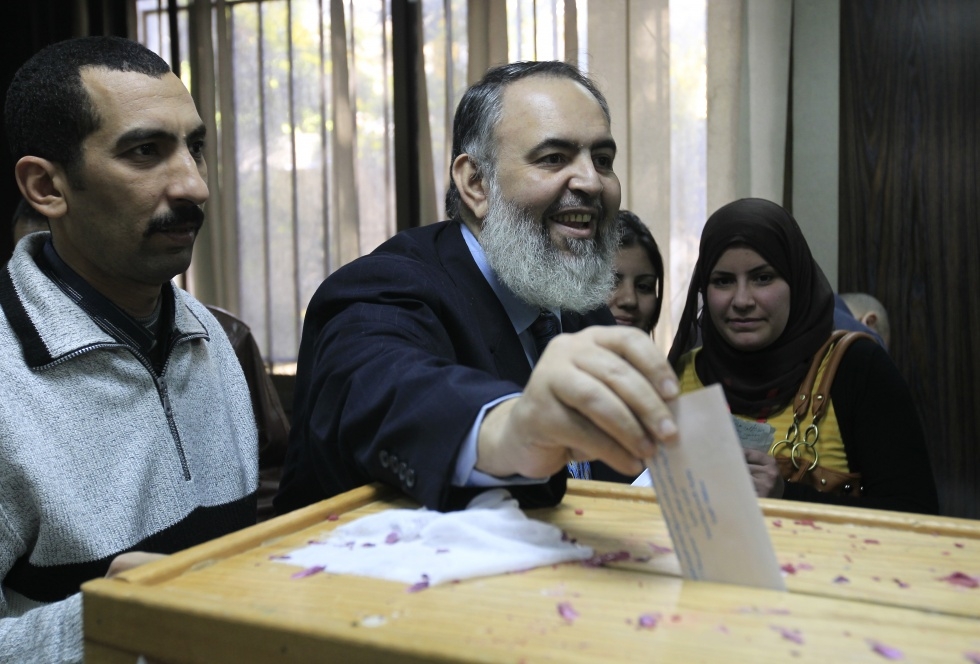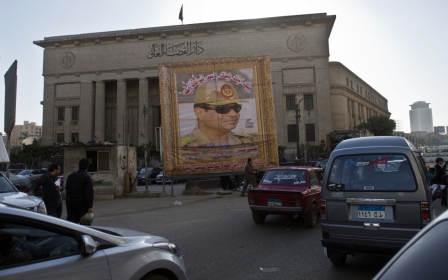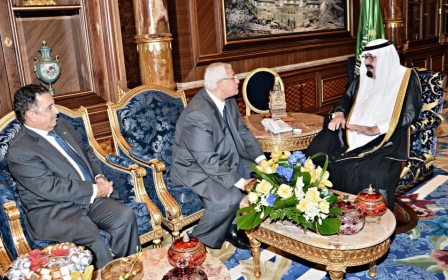Profile: Hazem Abu Ismail

Known best for his politically-charged religious sermons and intermittent attempts to enter politics, Hazem Abu Ismail was at the forefront of the presidential race in Egypt’s 2012 elections.
The former electoral candidate, who was on April 16 jailed by an Egyptian court to seven years for electoral fraud related to that bid, has a long history of dissent towards the military and a reputation for hard-hitting rhetoric against American foreign policy.
Early years
Abu Ismail, born in 1961, graduated as a lawyer from Cairo University. A father of three boys, he is the son of well-known Islamist figure Salah Abu Ismail, an eminent Al-Azhar scholar, a member of the Muslim Brotherhood and an established member of parliament.
Following in the footsteps of this father, Abu Ismail took part in the parliamentary elections of 1995, but was eliminated in one of the final stages. He failed to secure a seat as an independent Muslim Brotherhood candidate in 2005 parliamentary polls which were widely criticised for having been rigged in favour of candidates linked to Hosni Mubarak’s National Democratic Party.
New MEE newsletter: Jerusalem Dispatch
Sign up to get the latest insights and analysis on Israel-Palestine, alongside Turkey Unpacked and other MEE newsletters
In televised sermons, Abu Ismail vehemently criticised the Mubarak regime and defended members of the Muslim Brotherhood facing military trials, including the then deputy supreme leader Khairat Al-Shater, who later competed against him the 2012 presidential elections.
The Egyptian spring
Although considered a Salafist figure, Abu Ismail maintained an unwavering stance against the military regime. He defied many of his counterparts who swayed towards appeasement with Mubarak, or the military regime that took power following his overthrow.
In 2011, most Salafist figures adhered to the rule, “rebellious acts against a Muslim ruler are forbidden” - an interpretation of Sharia law upheld by Saudi and Salafist scholars. This meant they did not participate in Egypt's uprising or openly welcome them until much later down the line.
While Abu Ismail broke with this and was quick to support the 18-day revolt in Tahrir Square, he rejected improvemed sentiment towards the military that saw some Egyptians chants of “the army and the people are one hand”. Throughout 2011 and 2012, he remained critical of the army’s vested interests and continued to highlight the Supreme Council of Armed Forces’ violations.
Again in July 2013, while the Salafist Al-Nour Party swiftly supported the military-led overthrow of elected president Mohamed Morsi, Abu Ismail denounced the removal as a “military coup”.
Running for president
In April 2012, Abu Ismail announced his candidacy for the presidential elections, with posters of his white-bearded face flooding the streets of Egypt and opinion polls anticipating great success. Abu Ismail’s calls for applying Sharia law and his anti-American rhetoric won him massive support among the Egyptian public.
Although Abu Ismail assured Egyptian Copts that they would not be discriminated against should he take power - since Sharia law stipulates that every citizen is treated in accordance to his or her belief - Egyptian Christians feared their rights would be diminished if he were to win the race.
His short-lived campaign came to an end when it emerged that his late mother had an American passport. According to Egyptian electoral law, the parents and spouse of a presidential candidate can only hold Egyptian citizenship.
Abu Ismail’s disqualification angered his supporters, who protested in the streets calling on his return. They saw the ruling as a politically-motivated move.
The Islamist leader was arrested at his home in July 2013 and accused of inciting violence as protesters marched across Cairo demanding the return of ousted elected president Morsi. Egypt's prosecutor general Hisham Barakat also ordered his assets to be frozen.
Middle East Eye delivers independent and unrivalled coverage and analysis of the Middle East, North Africa and beyond. To learn more about republishing this content and the associated fees, please fill out this form. More about MEE can be found here.



